The Meanings of Christmas Present
Decorations for Christmas can say a lot more about people than the words they use to talk about it. Even the distinguished French sociologist Pierrre Bourdieu would agree with me as he had argued about such meaningfulness in Distinction: A Social Critique of the Judgement of Taste. To put it less esoterically, the stuff lying and hanging around someone's home says an awful lot about them, whether they like or not. The things you own, and perhaps that own you, may also have hidden meanings that require more explanation.
For about four decades my wife Suzanne and I have had a pre-Christmas party at our home for friends and neighbors on the Sunday before the holiday. Other than our own children, and now our grandchildren, relatives are not invited. They can come on Christmas Day, if they wish.
As already noted, guests to our annual party get small presents from my wife who this past summer picked them up in Palermo. One of my holiday jobs is to make the gift basket sign in the language of the country we visited. Other important annual tasks are putting the star on the top of the Christmas tree while teetering on a rickety step ladder and trying not to say "Bah humbug!" or express equivalent sentiments throughout the Holiday Season despite feelings to the contrary. It has been especially hard to smile during the Senate debate on whether their fellow Americans deserve the same free health care that they enjoy at our expense.
This is the Mission-style oak buffet in the living room. It looks expensive. I think we obtained it through the venerable urban practice of "dumpster diving" (tuffarsi del bidone della spazzatura) Finding good stuff in the garbage is a corollary of Boudieu's theory; "when tastes change, even good things get thrown out." My father used to bring home great things when he was a janitor in a building on Sutton Place. You'd be amazed at what rich people 'discard.' Note: poor people 'thow out' things.
This is the mantel in the combination dining room-kitchen. There are lots of chotchkas (chotchkas) here. The exquisite Santa Claus and the trumpeting Angel were hand-made by Susan -- a very talent good friend. The antique-looking kerosene lamp I got at a tag sale. The plates on the wall are souveniers (memorie) of travels.
This is the mantel on the mirror in the living room. Notice that my wife has already stuffed all the Christmas stockings with small gifts she has accumulated since last Christmas. I don't get one because finding coal (carbone) in Brooklyn is difficult nowadays.
This is the mantel in my office. I often change the order of the letters in NOEL to annoy my wife. Almost every non-working flat surface in the house, mantels, dresser tops, buffets, side tables, etc are occupied by family photographs (fotografie della famiglia). They often remind me that it is time to go on a diet (mangiare di meno e esercitarsi di piu).
This is my piano where my much more talented friend Gerry plays songs for our Christmas party crowd. This year we had 73 more or less melodious voices singing, among other things, "The Twelve Days of Christmas." One of my other holiday jobs is leading the children's chorus of "Five Golden Rings" (Cinque Anelli Dorati)
The tradition of sending cards was invented by the greeting card companies in the 19th century and has persisted to today despite the increasing popularity of sending e-greetings. Most of the cards we get for Christmas, or any other holiday (except for my birthday and Fathers Day) are directed toward my wife despite my name being included in the address because I, Scroogelike, am unlikley to reciprocate. This 'stylish' brick wall (muro di mattoni alla moda) was exposed by me with a hammer and wide chisel when we discovered, shortly after buying the house, that most of the plaster on the walls was falling off.
These are my office buddies Salvador (the black one) (Salvatore) and Rosita (the red one) (Rosinella). I wonder what Bourdieu would say about people who own cats. I'm sure he had an opinion on the subject. It's probably another middle-class affectation from which I suffer. They were given to me by my middle daughter, Karen, who named the black one after saving him and gave me the red one when she married Carlos who is allergic to cats (allergico ai gatti). I locked them in bedroom during the Christmas party to protect them from the guests. Like me, they don't like crowds. They will probably get catnip for Christmas.






























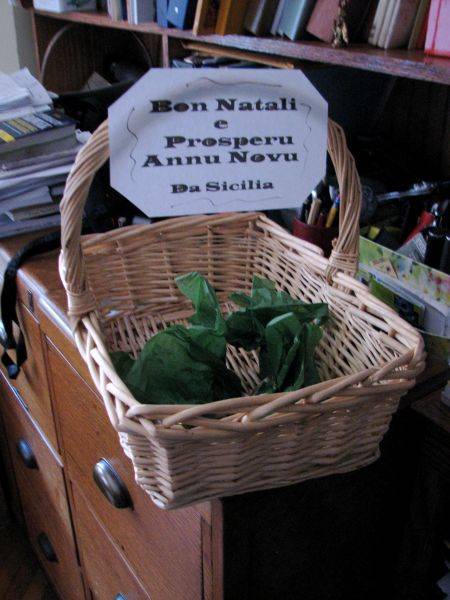
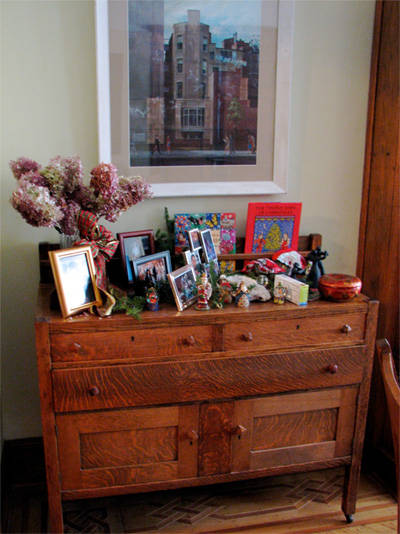
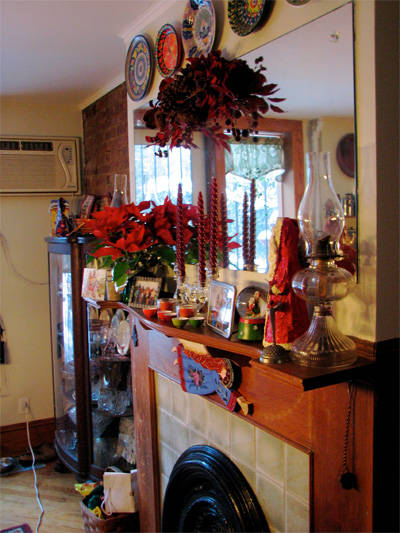
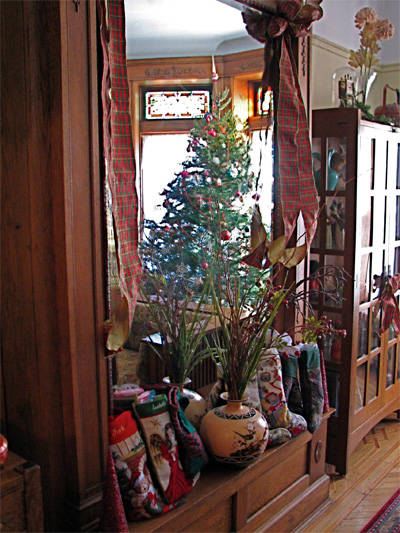
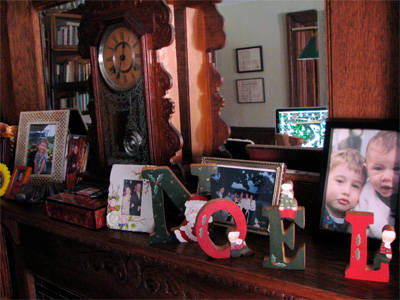
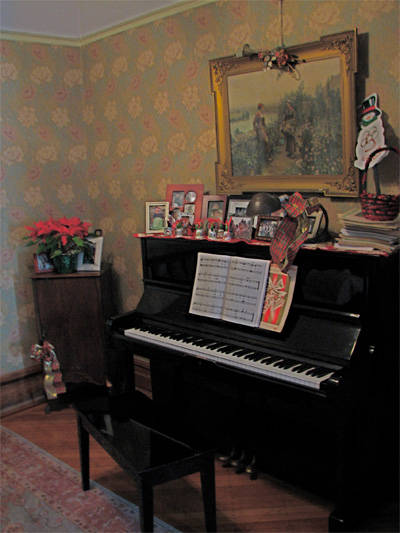
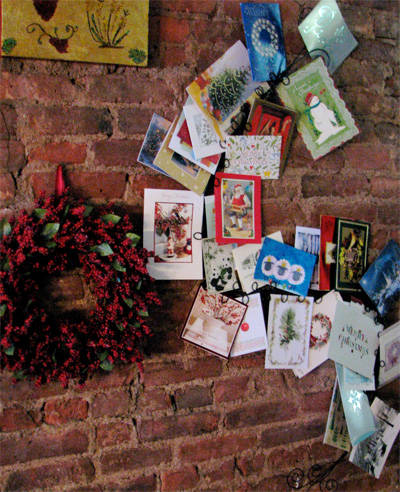
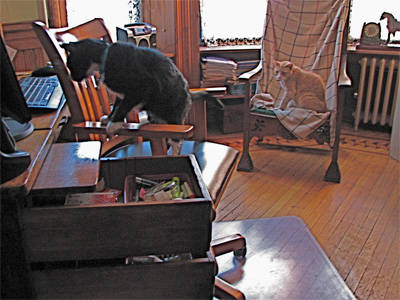









i-Italy
Facebook
Google+
This work may not be reproduced, in whole or in part, without prior written permission.
Questo lavoro non può essere riprodotto, in tutto o in parte, senza permesso scritto.